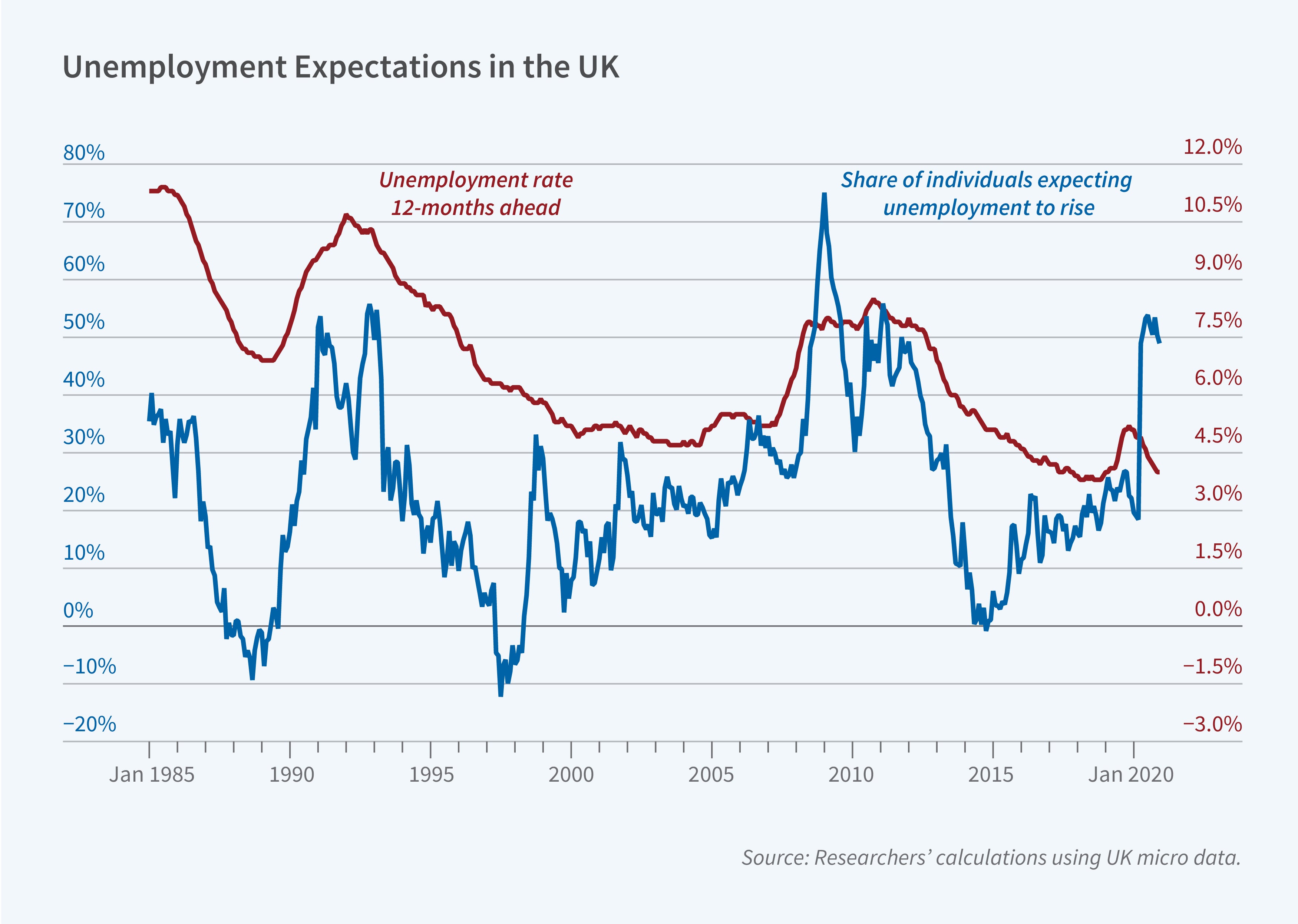Can Consumers’ Expectations Predict Downturns?

Economic variables have a mixed record when predicting consumers’ self-reported wellbeing. Consumer and firm expectations, however, have substantial predictive power for changes in economic activity. That’s the conclusion David G. Blanchflower and Alex Bryson reach in Wellbeing, Expectations and Unemployment in Europe (NBER Working Paper 32006). They find that individuals’ fears of becoming unemployed, as tracked in household surveys, rose in the months before both the Great Recession and the COVID-19 recession.
The researchers couple consumer expectations of future employment with firms’ expectations of future staffing levels in 29 European countries between 1985 and 2022. Besides foreshadowing the Great Recession and the pandemic-driven downturn, their indicators also show a sharp rise in fear of unemployment in 2022, when Russia invaded Ukraine. The survey data made more accurate predictions than many professional forecasters. The researchers point out that consumers and businesses are close to economic transactions and can possess more timely information than policymakers and statisticians.
The researchers find that various measures of consumer wellbeing, such as their fear of unemployment, perception of the economic situation, and their household financial situation, rise and fall with economic conditions. The researchers concentrate on consumers’ expectations regarding future unemployment as especially useful in predicting downturns ahead of other data. The survey analyzed by the researchers asked individuals to predict the rate of unemployment in 12 months. Between 1985 and the late 1990s, these predictions generally overstated the realized unemployment rate by 1 to 2 percentage points. At the turn of the century, it underpredicted unemployment by 1 percentage point. Starting in 2002, the forecasts were typically accurate to within half a percentage point. Over the full sample period, mean unemployment in Europe was 8.56 percent; expectations surveys predicted 8.88 percent.
Fear of unemployment rose in all 29 of the European nations studied in the first half of 2008, before the Great Recession, but central banks seemed unaware that most of Europe’s economies had fallen into recession by the second quarter of that year. Fear rose between 2018 and 2019 in 11 of 17 countries in Western Europe and 6 of 11 in Eastern Europe — before the pandemic. This suggests that even without that pandemic shock, the region might have fallen into recession.
The expectations data are collected monthly, which makes them useful for high-frequency prediction of a nation’s future unemployment rate. “In our view,” the researchers conclude, “if central banks had been using these methods, they would have spotted the Great Recession many months before they did.”
— Laurent Belsie
The researchers acknowledge they were paid by the UN Human Development Programme to advise them. They acknowledge financial support from the United Nations.


